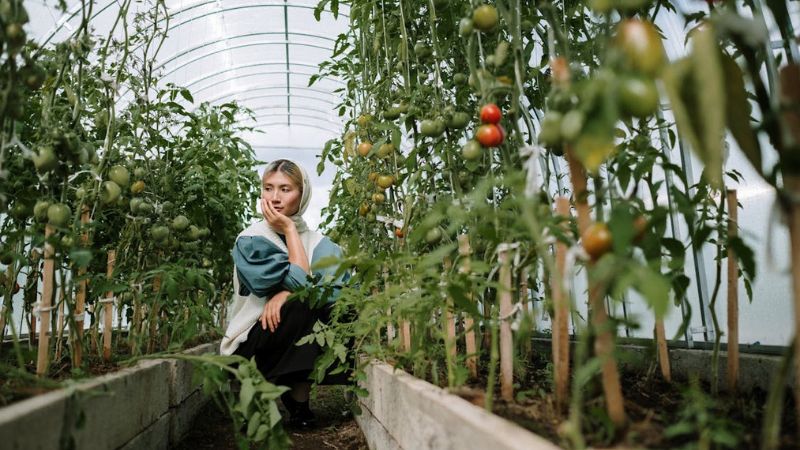Tomatoes are beloved by gardeners worldwide for their versatility, flavor, and nutritional value. However, like any plant, tomatoes have their preferences when it comes to companions in the garden. While some plants thrive alongside tomatoes, others can hinder their growth and development. In this guide, we’ll explore nine companion plants you should avoid planting alongside your tomatoes to ensure a bountiful harvest.
1. Corn

While corn and tomatoes might seem like a natural pairing due to their prevalence in many gardens, they are not ideal companions. Corn competes with tomatoes for essential nutrients like nitrogen, which can stunt tomato growth and reduce yields. Additionally, tall corn plants can shade tomatoes, limiting their access to sunlight and inhibiting fruit production.
2. Potatoes
Both tomatoes and potatoes belong to the nightshade family, making them susceptible to similar pests and diseases. Planting them together increases the risk of spreading diseases such as early blight, late blight, and potato beetles. Additionally, potatoes can outcompete tomatoes for resources like water and nutrients, leading to reduced tomato yields.
3. Fennel
Fennel exudes chemicals that can inhibit the growth of nearby plants, including tomatoes. Planting tomatoes near fennel can result in stunted growth and poor fruit development. Furthermore, fennel’s aggressive root system can compete with tomatoes for space and resources, further compromising their growth.
4. Brassicas (Cabbage, Broccoli, Cauliflower)
Members of the brassica family, including cabbage, broccoli, and cauliflower, are not compatible with tomatoes. These plants attract similar pests, such as cabbage worms and aphids, which can easily transfer between them. Additionally, brassicas have high nutrient requirements, leading to increased competition with tomatoes for soil nutrients.
5. Walnuts
Walnut trees, along with other members of the Juglandaceae family, produce a chemical called juglone, which can inhibit the growth of many plants, including tomatoes. Planting tomatoes near walnut trees or in soil previously inhabited by walnuts can result in stunted growth, yellowing of leaves, and poor fruit production.
6. Dill
While dill attracts beneficial insects like ladybugs and predatory wasps, it can have a detrimental effect on nearby tomatoes. Dill emits compounds that can inhibit the growth of tomatoes and other vegetables, particularly carrots and peppers. Planting tomatoes near dill can result in reduced yields and overall plant health.
7. Kohlrabi
Kohlrabi, a member of the brassica family, is not an ideal companion for tomatoes. Like other brassicas, kohlrabi competes with tomatoes for nutrients and attracts similar pests and diseases. Planting them together can lead to decreased tomato yields and increased susceptibility to pest infestations and diseases.
8. Peppers
While tomatoes and peppers are often grown together in salsa gardens, they are not the best companions in terms of growth and productivity. Both plants have similar nutrient requirements and are susceptible to similar pests and diseases. Planting them together can lead to increased competition for resources and higher pest pressure, resulting in reduced yields for both crops.
9. Strawberries

While strawberries and tomatoes both thrive in sunny, well-drained locations, they are not ideal companions due to their susceptibility to similar diseases, such as verticillium wilt and fusarium wilt. Planting them together can increase the risk of disease transmission and lead to decreased yields for both crops.
In conclusion, while companion planting can offer numerous benefits in the garden, it’s essential to choose companions wisely to avoid competition for resources, pest infestations, and disease spread. By avoiding planting tomatoes alongside incompatible companions like corn, potatoes, fennel, brassicas, walnuts, dill, kohlrabi, peppers, and strawberries, you can ensure optimal growth and productivity for your tomato plants.
